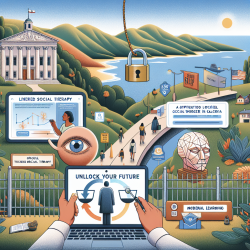Here are some actionable steps based on the research findings:
1. Embrace Telemedicine for Continuing Education
The study emphasizes the importance of telemedicine in continuing medical education. With 145 sessions and over 6,575 health professionals participating, the Brazilian Telemedicine University Network (RUTE) has shown how effective telemedicine can be in bridging knowledge gaps. Consider integrating telemedicine sessions into your professional development plan to stay updated on the latest advancements and best practices.2. Utilize Telemedicine for Remote Consultations
Telemedicine isn't just for education; it's also a powerful tool for remote consultations. The research indicates that telemedicine can provide second opinions and specialized consultations, which are particularly beneficial for practitioners in geographically distant areas. By leveraging telemedicine, you can offer your patients access to a broader range of expertise without the need for travel.3. Implement Telemedicine in Disaster Preparedness
The study highlights how telemedicine was used for disaster preparedness training in Brazil, particularly before major events like the FIFA World Cup and the Summer Olympics. This approach can be adapted to your practice to ensure that your team is prepared for emergencies. Regular telemedicine training sessions can help your team stay sharp and ready to respond to crises.4. Foster Collaboration and Knowledge Sharing
Telemedicine facilitates collaboration among healthcare professionals. The research shows that RUTE's network enabled real-time knowledge sharing and decision-making among experts. By participating in telemedicine networks, you can collaborate with peers, share insights, and collectively improve patient care.5. Address Ethical and Confidentiality Concerns
While telemedicine offers many benefits, it's crucial to address ethical and confidentiality concerns. The research underscores the importance of maintaining data confidentiality and informed consent. Ensure that your telemedicine practices adhere to ethical standards and protect patient privacy.6. Encourage Further Research
The study provides a solid foundation, but there's always room for further research. As a practitioner, consider conducting your own research or collaborating with academic institutions to explore new telemedicine applications. This will not only enhance your skills but also contribute to the broader body of knowledge in healthcare.Incorporating these strategies into your practice can significantly enhance your skills and improve patient outcomes. Telemedicine is a powerful tool that, when used effectively, can bridge the knowledge gaps and provide better healthcare for all.
To read the original research paper, please follow this link: Telemedicine: a Bridge Over Knowledge Gaps in Healthcare.










